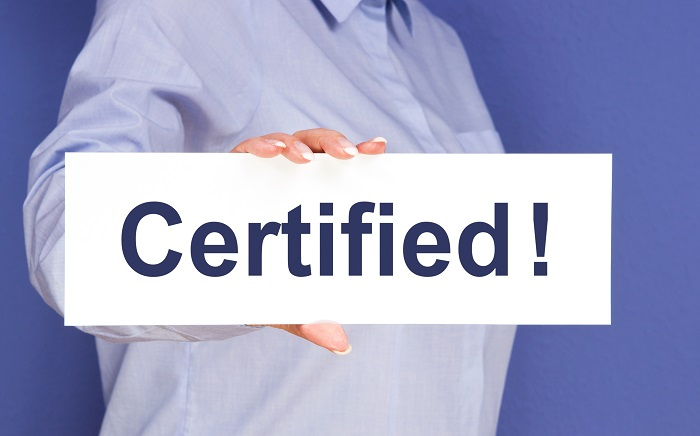
 Data Structure
Data Structure Networking
Networking RDBMS
RDBMS Operating System
Operating System Java
Java MS Excel
MS Excel iOS
iOS HTML
HTML CSS
CSS Android
Android Python
Python C Programming
C Programming C++
C++ C#
C# MongoDB
MongoDB MySQL
MySQL Javascript
Javascript PHP
PHP
- Selected Reading
- UPSC IAS Exams Notes
- Developer's Best Practices
- Questions and Answers
- Effective Resume Writing
- HR Interview Questions
- Computer Glossary
- Who is Who
History and Evolution of the PMP® Certification
PMP, or Project Management Professional, is a certification for aspiring project managers looking to advance their careers in this industry. Although the certification isn't mandatory, it enhances your resume and showcases your management skills and expertise in this field. PMP certification secures your career, especially if you are a beginner with zero experience in managing projects, human resources, or other aspects of the business. For the past 36 years, PMP certification has been used as a tool to gauge the manager's expertise and ability to handle complex tasks. The exam pattern kept changing every now and then, but we witnessed one of the biggest changes in the format in 2021, when the entire exam structure changed.

What is PMP® Certification?
The demand for skilled and professional project managers is high across different industries. Whether you are in the construction business or the healthcare industry, you need a project manager to handle your day-to-day management operations or execute projects of different complexities effortlessly. Introduced by the Project Management Institute, PMP is an industry-recognized certification for project managers. In this post, we are going to discuss the history and evolution of PMP® Certification. Let's take a look.
History of PMP® Certification
The history of PMP® Certification dates back to the time when ESA published a report that discussed the Code of Ethics for project management, the eligibility criteria for the same, and the minimum standards that every candidate applying for this exam must achieve in order to be considered eligible for the industry. The report clearly suggests that PMBOK Guide, which has all concepts that are asked in the PMP exam, will continue to evolve based on the latest trends and changes in the project management industry.
In the 1983 edition of the PMQ report, around 86% of the people in the PMI mentioned that they were in favor of developing some kind of certification program that could assess the individual's ability to manage projects. The report for the same was published a year later, showing the detailed process of becoming a project manager.
The report clarified the areas where the manager could earn points. It included education, experience, and service. To achieve the PMP® Certification, the applicants are supposed to show that they have completed their minimum qualifications. Once they have proved their education and minimum experience required, they need to pass the multiple-choice-question test.
To qualify for the test, you must read the PMBOK guide, as it contains all subjects about project management and the topics that will be asked in the PMP test. Just passing the test won't do, though. PMP certification adds value to your resume, but that alone doesn't show your experience in the industry. Some companies might want professional project managers that have practical experience in managing projects of various complexity levels. In addition to that, your PMP credentials will expire in 3 years, requiring you to renew them by achieving PDUs (Professional Development Units).
PMBOK Guide Evolution
The first edition of the PMBOK Guide was launched in 1996 when the PMI wanted to introduce a detailed guide to show the advanced procedures of managing any kind and complexity of a project efficiently.
After the ESA published a report about the requirement for a project management guide in 1983, it underwent several changes in the following years. Finally, the Project Management Body of Knowledge was published in 1987, giving aspiring project managers detailed insights into the processes and methods of this field. This document went through multiple changes, and eventually, the first edition of the PMBOK guide was launched in the year 1996.
The second edition of this guide was launched in 2000, giving you a clear picture of the growth of project management, how it has evolved over time, and the best practices to streamline management. Four years later, the third edition of the PMBOK guide was launched. The focus of the guide was on explaining the good practices that work on most projects. The fourth edition, launched in 2009, focused on expanding the three constraints of project management to budget, project scope, schedule, risk, and resources.
The fifth edition was launched in 2015. It was the most comprehensive version of the PMBOK Guide, as it covered each methodology, practice, technology, and tool useful for project management. Likewise, many new versions of the PMBOK has released. The goal of each guide is to improve the candidate's knowledge and make them capable of attending the PMP exam with full confidence and preparation.
Renewal of PMP Certification
The PMP exam pattern focuses on managing people, resources, budgets, and deadlines. There are several concepts that test the candidate's knowledge regarding how they would handle a real-world project when they are faced with certain challenges. How would they overcome these challenges, achieve stakeholders' satisfaction, and complete projects in a timely manner? Most importantly, this exam tests your knowledge of how to meet industry standards when working on different projects.
As mentioned before, the PMP certification is valid for three years. Every project manager holding the certification must achieve the PDUs during these initial years to qualify for the PMP renewal. The PDUs can be achieved by learning new trends and practices in project management, gaining more practical experience in projects of different difficulty levels, and volunteering. Once you have completed the PDUs and they are recorded in the Continuing Certification Renewal System (CCRS), your PMP certification will be renewed for the next three years. Then again, you have to work toward achieving the PDUs. It's an ongoing process.
Failure to complete your PDUs within time can lead to the suspension of your PMP certification and, eventually, termination. You have one year after the PMP suspension to renew your PMP certification. Once it is expired, you have to reappear for the PMP exam.
PMP certification has undergone many changes since it started. The continuous changes in project management practices and evolving technology have brought tremendous change in the way the exam is conducted and its pattern.

